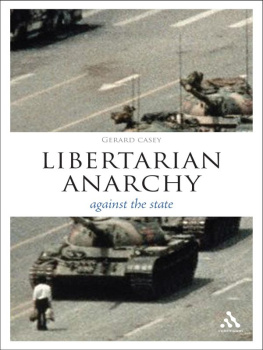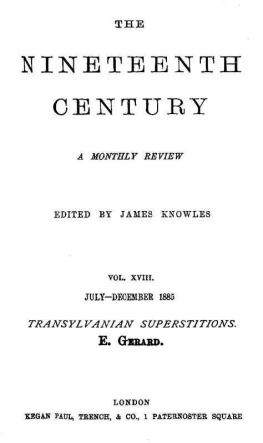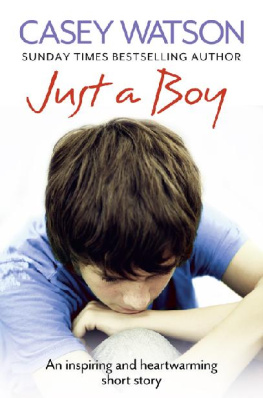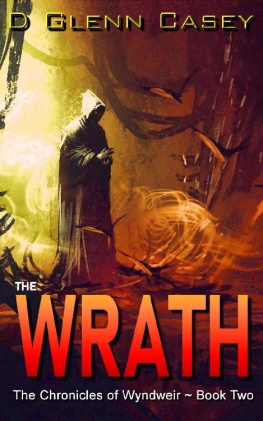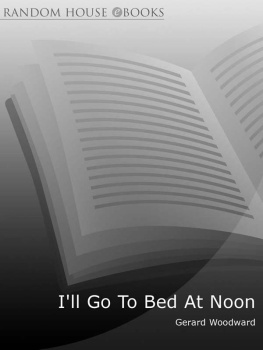Casey Gerard - Freedoms Progress?
Here you can read online Casey Gerard - Freedoms Progress? full text of the book (entire story) in english for free. Download pdf and epub, get meaning, cover and reviews about this ebook. year: 2018, publisher: Andrews UK Ltd., genre: Politics. Description of the work, (preface) as well as reviews are available. Best literature library LitArk.com created for fans of good reading and offers a wide selection of genres:
Romance novel
Science fiction
Adventure
Detective
Science
History
Home and family
Prose
Art
Politics
Computer
Non-fiction
Religion
Business
Children
Humor
Choose a favorite category and find really read worthwhile books. Enjoy immersion in the world of imagination, feel the emotions of the characters or learn something new for yourself, make an fascinating discovery.

- Book:Freedoms Progress?
- Author:
- Publisher:Andrews UK Ltd.
- Genre:
- Year:2018
- Rating:5 / 5
- Favourites:Add to favourites
- Your mark:
- 100
- 1
- 2
- 3
- 4
- 5
Freedoms Progress?: summary, description and annotation
We offer to read an annotation, description, summary or preface (depends on what the author of the book "Freedoms Progress?" wrote himself). If you haven't found the necessary information about the book — write in the comments, we will try to find it.
Freedoms Progress? — read online for free the complete book (whole text) full work
Below is the text of the book, divided by pages. System saving the place of the last page read, allows you to conveniently read the book "Freedoms Progress?" online for free, without having to search again every time where you left off. Put a bookmark, and you can go to the page where you finished reading at any time.
Font size:
Interval:
Bookmark:
FREEDOMS PROGRESS
A History of Political Thought
Gerard Casey
imprint-academic.com
First published in 2017 by
Imprint Academic
www.imprint-academic.com
Digital edition converted and distributed by
Andrews UK Limited
www.andrewsuk.com
Copyright 2017 Gerard Casey
The right of Gerard Casey to be identified as the author of this work has been asserted in accordance with the Copyright, Designs and Patents Act 1998.
All rights reserved. No part of this publication may be reproduced, stored in a retrieval system, or transmitted, in any form or by any means without the prior written permission of the publisher, nor be otherwise circulated in any form of binding or cover other than that in which it is published and without a similar condition being imposed on the subsequent purchaser. Any person who does so may be liable to criminal prosecution and civil claims for damages.
The views and opinions expressed herein belong to the author and do not necessarily reflect those of Imprint Academic or Andrews UK Limited.
Acknowledgements
I owe a debt of gratitude to many people for helping me along the way in the composition of this book. First and foremost, thanks must go to Dr Thomas E. Woods for getting the whole thing started. While I was captive in his car on the journey from Atlanta to Auburn in March 2013, he made me an offer which I couldnt refuse to draft a series of lectures on the history of political thought for his LibertyClassroom website (www.libertyclassroom.com). I was gratified to be invited to contribute to this superb resource for lovers of liberty and I accepted the invitation. The lectures I produced for LibertyClassroom provide the foundation for this book. Some parts of the material have remained relatively constant over time but I have made significant additions and alterations to other parts, specifically to the material on Christianity and on Marx. Some material, such as that on Kant, Hegel, Rand, Hayek, Nozick, Rothbard and Rawls, is completely new. All in all, the material in this book is a much revised, expanded and more extensively researched and documented version of the LibertyClassroom lectures.
Thanks are also due to my last PhD student, Jason Walsh, for holding up his end of our many conversations and for his eminently practical help in bringing this book into the world; to my son, Gerard Casey, for drawing the diagrams in the Plato chapter; to Andy Curzon and Garrett Barden for heroic and supererogatory feats of proof-reading; to Nikos Sotirakopoulos, author of The Rise of Lifestyle Activism , for his comments and criticisms on the Introduction and the chapters on Marx, Twentieth-Century Tribalism and Ayn Rand et al; to Carl Watner for his helpful suggestions in connection with the journal Liberty and its writers; to my University College Dublin colleague, Timothy Crowley, for his provision of links to stimulating and controversial material and for his psychic support; and to all the students, undergraduate and postgraduate, in University College Dublin who took my courses on Anarchy, Law and the State and Law, Liberty and the State and who, by their questions, objections and stout resistance, forced me to be less incoherent than I might otherwise have been.
A very special thanks is due to the indefatigable Dr Walter Grinder for his circular emails with their extraordinarily helpful bibliographical suggestions, from many of which I have profited immensely. Also, in that connection, I thank the Book Depository for all the books (see the bibliography!) delivered to me post free but not, alas, cost free; as I have been intellectually enriched, so have I been financially impoverished. Actually, now that I come to think of it, perhaps the people at the Book Depository should be thanking me!
I steadfastly refuse to allow anyone else to claim credit for any errors, omissions, inaccuracies and distortions; theyre mine, all mine. More to the point, no one besides me shoulders the responsibility for the frankly partisan nature of the text which, at some point or other, is sure to annoy or even upset not only those who hold views on the nature and importance of liberty that are diametrically opposed to mine but even some whose views on the topic of liberty largely coincide with mine. But then, I am of one mind with Kingsley Amis who once said, If you cant annoy somebody with what you write... theres little point in writing.
Preface
Freedom is the right to live as we wish. Nothing else
-Epictetus
Most people want security in this world, not liberty
-H. L. Mencken
I tell Thee that man is tormented by no greater anxiety than to find someone quickly to whom he can hand over that gift of freedom with which the ill-fated creature is born
-Dostoevsky
On the British quiz programme, Tipping Point , the following question was once asked of two young contestants: Which Duke of Normandy invaded England and became its king? In a stunning tribute to the efficacy of the English education system, to have a detailed knowledge of every aspect of their countrys history - as Will Rogers noted, Everybody is ignorant, only on different subjects - but there are certain seminal historical events in the past of any country that it would seem could not possibly be unknown to any educated adult with a pulse and a functioning cerebellum. In English history, what W. C. Sellar and R. J. Yeatman, in their hilarious 1930s spoof, called 1066 and All That , is just such an event.
It may be some consolation - then again, it may not - to realise that the great British publics knowledge of Britains geography would appear to be just as bad as its knowledge of its history. A 2016 Ordnance Survey test of peoples knowledge of the geography of the United Kingdom showed that 40% of respondents were unable to locate London on an unlabelled map! Edinburgh fared worse, with only 14% of those surveyed getting its location right but, then again, Edinburgh is a fairly exotic location. Even so, the humdrum cities of Birmingham and Manchester didnt fare much better than the more outlandish Edinburgh, garnering correct scores of just 15% and 22% respectively. One in ten respondents placed the Scilly Isles in the Irish Sea in the spot normally occupied by the Isle of Man, while one in twenty put them off the coast of Scotland, forcing the Hebrides to scrunch up to make room for them. [Bingham 2016] All of which leads one to conclude that Oscar Wilde may have been right when he quipped, In England, at any rate, education produces no effect whatsoever, before adding, gratefully, If it did it would prove a serious danger to the upper classes, and probably lead to acts of violence in Grosvenor Square.
In the more-schooling = more-ignorance stakes, the British dont have it all their own way. Two out of three seventeen-year old Americans cant place the Civil War within fifty years of when it occurred; one in five cannot say which countries the US fought against in World War II. Progressive education reform, writes Josha Foer, made school a lot more pleasant, and a lot more interesting. But its also brought with it costs for us as individuals and as citizens. Memory is how we transmit virtues and values, and partake of a shared culture. [Foer 2012, 208] It cant be denied that, all things considered, it is better that schools be pleasant and interesting rather than not, but not if such pleasantness and interestingness comes at the cost of obliterating the schools basic function. I am reminded of the passage in Pride and Prejudice in which the pretentious Caroline Bingley attempts to impress Mr Darcy: I should like balls infinitely better, Miss Bingley remarked, if they were carried on in a different manner; but there is something insufferably tedious in the usual process of such a meeting. It would surely be much more rational if conversation instead of dancing made the order of the day. Her brothers reply deflates her pretensions: Much more rational, my dear Caroline, I dare say, but it would not be near so much like a ball.
Next pageFont size:
Interval:
Bookmark:
Similar books «Freedoms Progress?»
Look at similar books to Freedoms Progress?. We have selected literature similar in name and meaning in the hope of providing readers with more options to find new, interesting, not yet read works.
Discussion, reviews of the book Freedoms Progress? and just readers' own opinions. Leave your comments, write what you think about the work, its meaning or the main characters. Specify what exactly you liked and what you didn't like, and why you think so.

